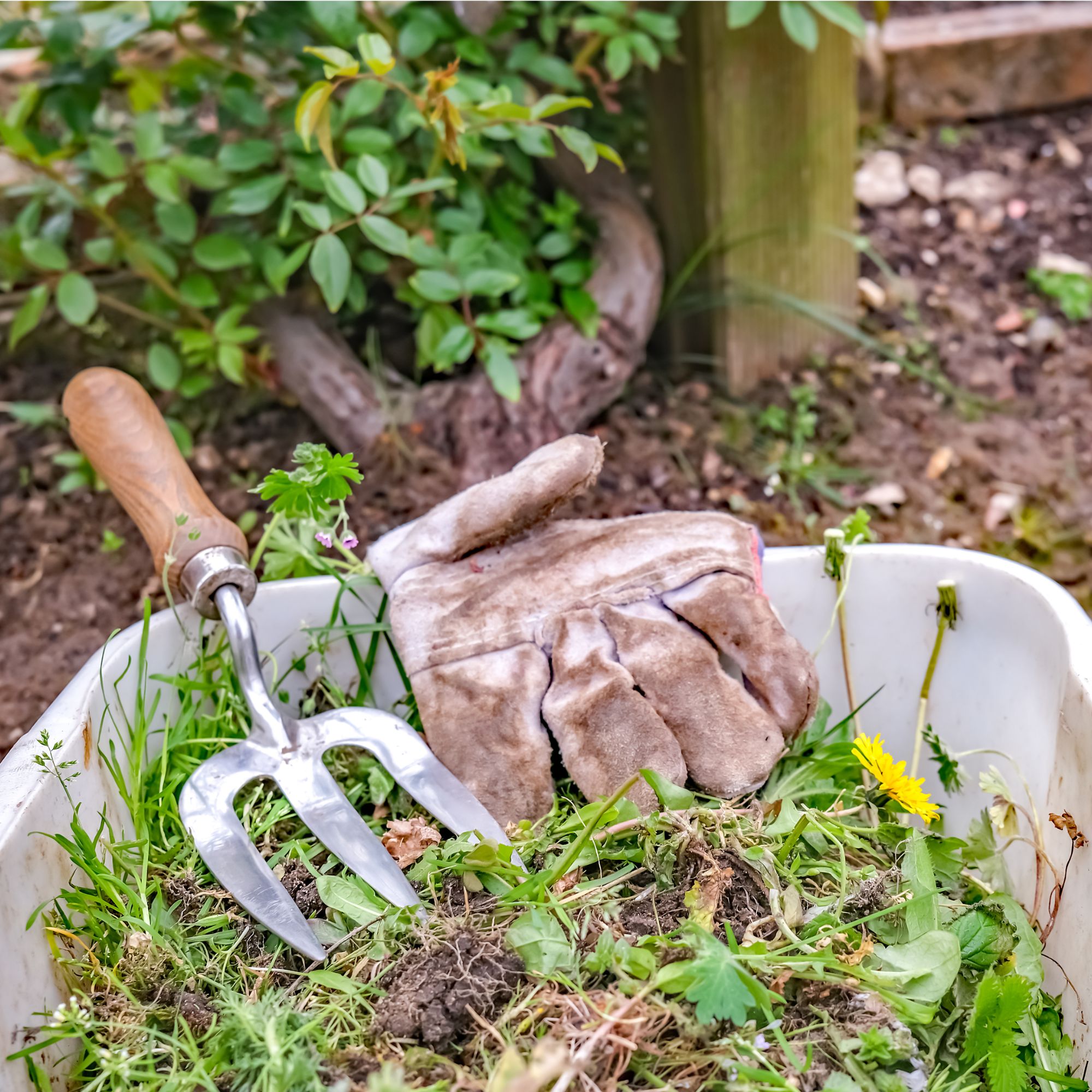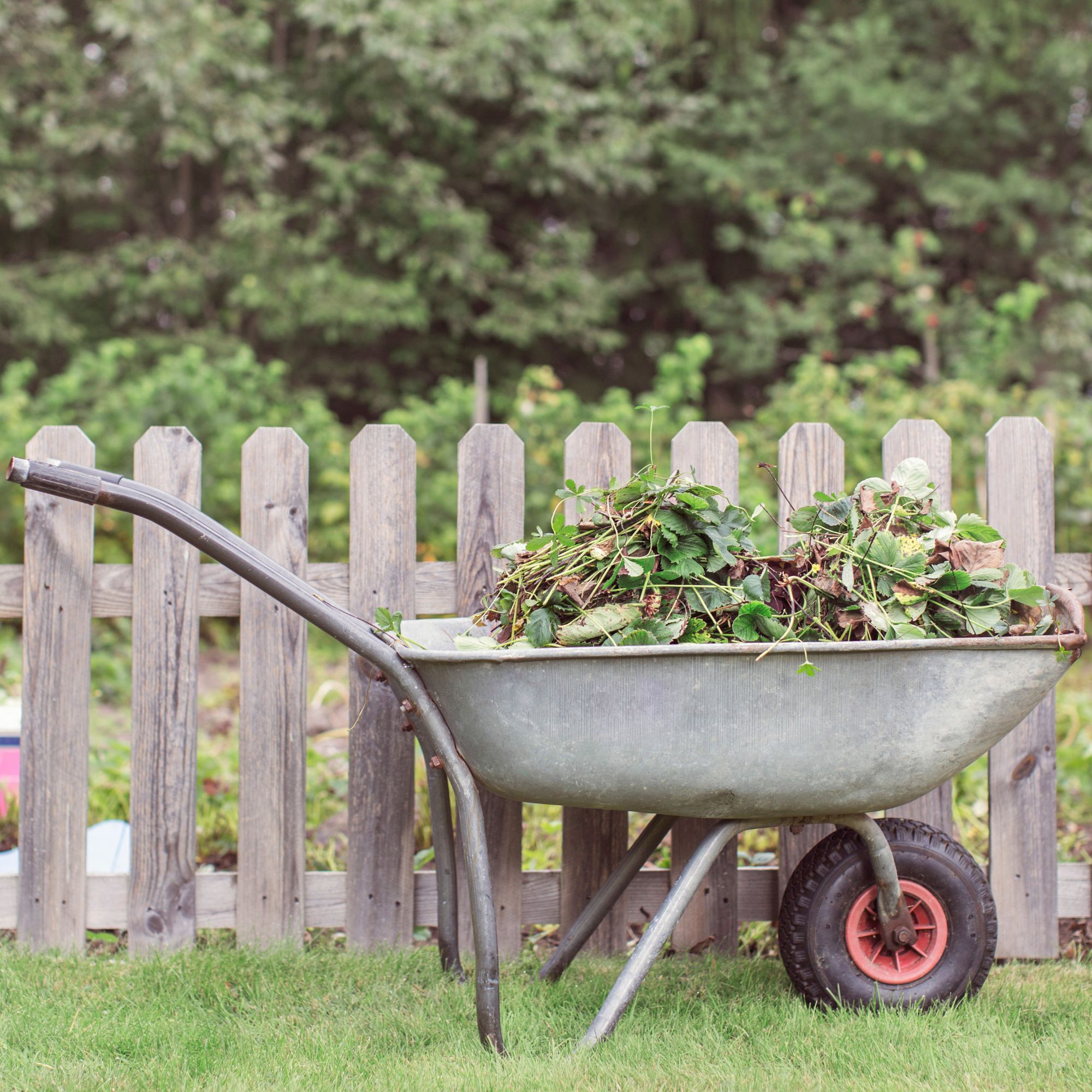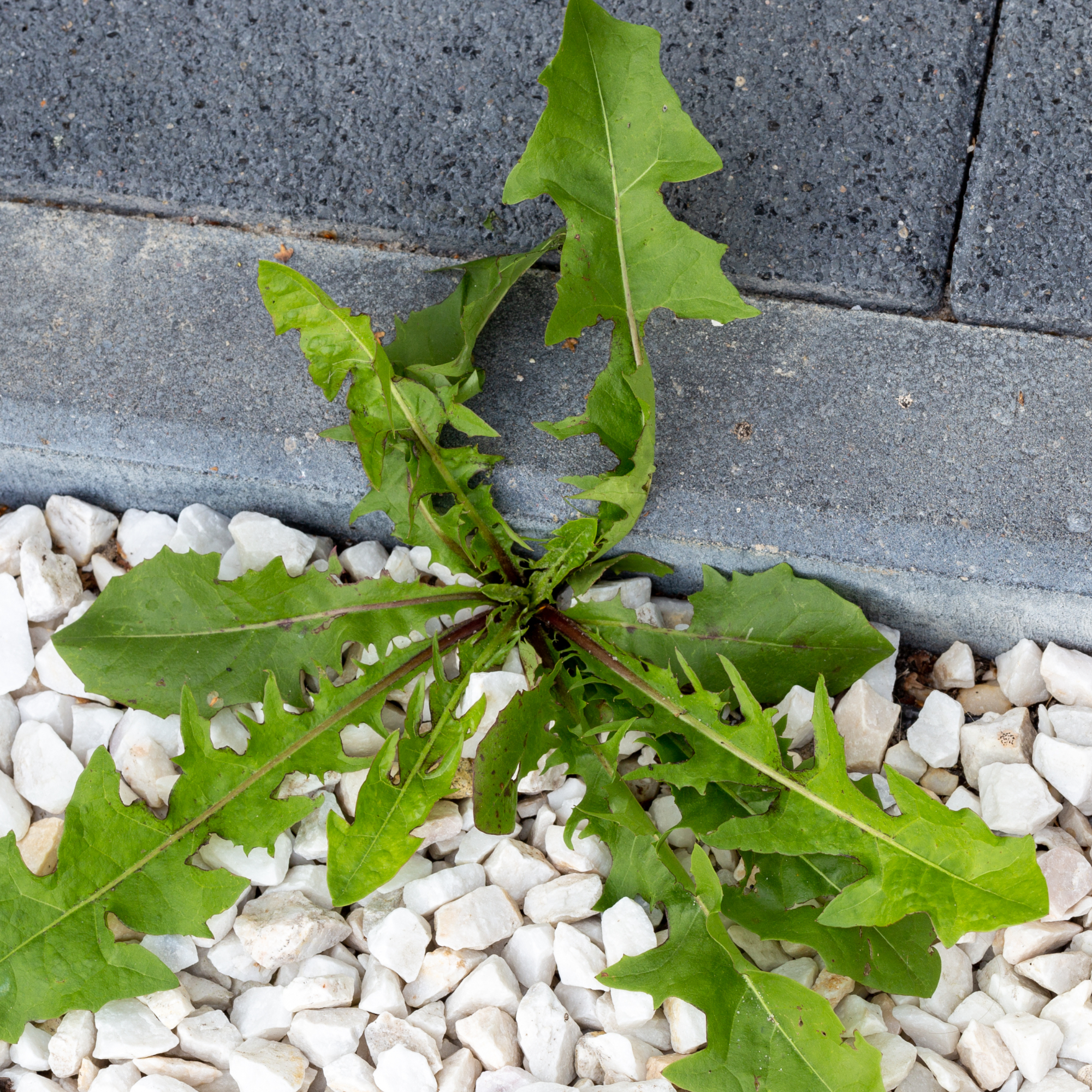
Weeding feels like a never-ending task, no matter how many tricks in the book you've exhausted. But, suppose you're lucky enough to have some chlorine on hand – as a result of pool or hot tub filter maintenance following the heatwave, for example – you might question whether you can use chlorine to kill weeds.
Among all the many ways to get rid of weeds, using chlorine might seem like a more unconventional (and not as readily available) option; but, similar to using bleach to kill weeds, it does work.
However, given its harsh chemical properties, using chlorine is not exactly the favoured method gardening experts would recommend for removing weeds from a patio or anywhere else in your outdoor space.

'Chlorine, in the form of ordinary household bleach, can indeed kill weeds, as it works by burning the weed's foliage,' begins James Ewens, gardening expert at Green Feathers.
When chlorine is applied directly to the weeds, it causes them to wither and die very quickly. While it seems like a quick fix, James warns that using chlorine is not the best option for your garden in the long run nor is it a suitable method for the majority of people.
'I wouldn't recommend it unless you are having major weed troubles, and if you have a garden or patio that is being completely stripped back, with no current life in it,' adds John Clifford, gardening expert at Gardenstone.
This is because of a handful of reasons. First, chlorine bleach isn't very selective.

'This means it will also kill any other plants it touches besides just the weeds,' explains Victoria Cummins, gardening expert at PlantWhisperer. 'It might damage or destroy flowers, vegetables, herbs and other plants you want to keep in your garden. The soil can also be harmed by chlorine bleach for a long time.'
If you've spent a long time cultivating a wildflower garden or take pride in growing your own vegetables and fruit at home, steering clear of chlorine is a no-brainer to ensure the health of your garden.
Second, it's terrible for the wider ecosystem. 'When chlorine is used in gardens and on patios, it can leach into the groundwater or run off into nearby water bodies when it's raining or after watering,' explains John. It will negatively impact aquatic life as well as animals that drink from the water source, harming any shot you have at encouraging a wildlife-friendly garden.

To add, John warns that 'chlorine can also be harmful to both humans and pets if it's ingested or even comes into contact with skin or fur. It can also release toxic fumes when mixed with other common household chemicals, so this is a big problem if you are currently using other chemicals in your garden.'
On top of being harmful to the environment and potentially causing damage to many garden and patio ideas, using chlorine is still just a temporary solution.
'It kills the weed foliage but leaves the roots intact and unharmed, meaning those pesky plants will likely sprout back,' says James. Failing to ensure weeds are removed right from the root is one of the most common weeding mistakes people often fall victim to.
That said, instead of attempting to use chlorine to kill weeds, there are way better solutions to get rid of weeds in a lawn, patio, or flower beds that are not only more effective but are also far gentler for the environment.

Alternative natural ways to kill weeds
For smaller areas, simply pulling the weeds out by hand when the soil is moist is a tried and tested method to get rid of weeds naturally. 'Although it's generally quite labour-intensive, removing the entire root of the weed is incredibly effective and instant,' assures John.
Another natural way to keep weeds at bay is by using mulch or groundcover plants to stop weeds from growing. This is a particularly effective method for keeping weeds out of flower beds, for example.
Lastly, you can also consider creating a DIY weedicide to tackle the issue. 'Mix white vinegar, water, and a few drops of washing-up liquid together. This can be an effective weed killer, without damaging the environment,' explains John.
'The acetic acid in vinegar draws moisture out of the weeds, meaning that they then dry out and die. This method works best for young, smaller weeds,' he continues.
Vinegar is a natural way to tackle weeds, either by itself or as part of a DIY weedicide. Just make sure you are careful about how you target them so as not to damage your other plant life.
While you can simply use your hands to pull weeds from the ground, this handy tool allows you to easily get to the roots to ensure thorough weed removal.
Naturally reduce weed growth by up to 95% by utilising mulch in your garden to suffocate weeds and provide moisture and enrichment to surrounding plants.
To conclude, unless it's a very small area like a patio crack or completely destitute like a stripped garden undergoing renovation, using chlorine to kill weeds is not recommended nor expert-approved.
'Natural alternatives are safer and better for continuing to have a healthy, productive garden,' assures Victoria – which is exactly why we'll be opting for the gentler methods to remove weeds to ensure our gardens stay thriving.







